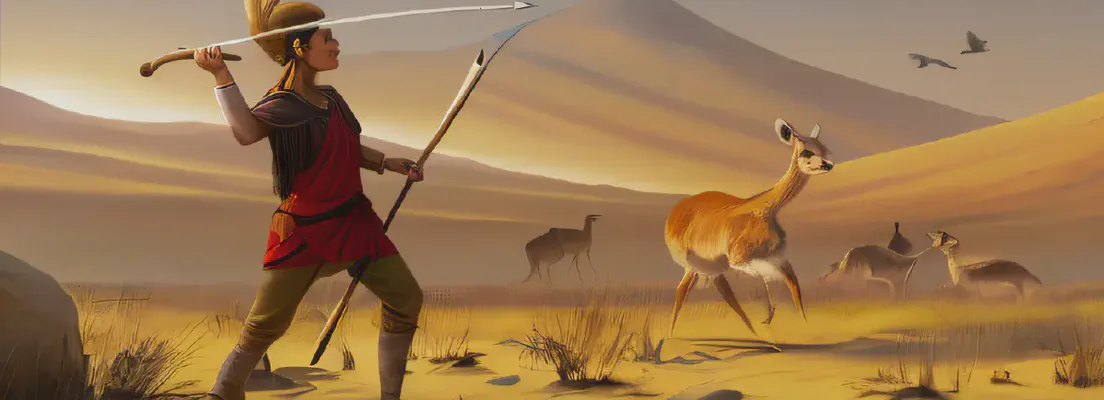Women Role in Herstory
In the annals of history, it was commonly believed that men were the primary hunters in early human societies, while women tended to domestic tasks. However, a recent discovery in the Andes Mountains has shattered this notion, shedding new light on the role of females in big-game hunting.
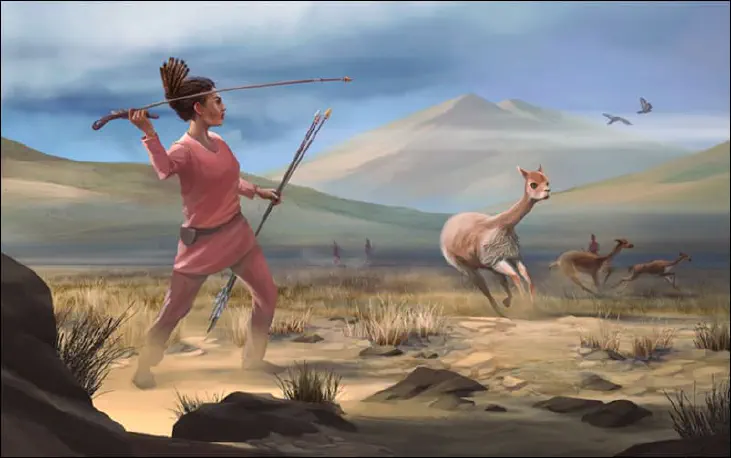
— Matthew Verdolivo/UC Davis IET Academic Technology Services
A groundbreaking excavation led by Randy Haas, the lead author of the study “Female Hunters of the Early Americas” published in Science Advances, has revealed a remarkable find. Contrary to long-held beliefs, this discovery unravels the myth that men exclusively assumed the role of warrior hunters for sustenance. Haas argues that gender roles in hunter-gatherer societies were far more equitable than previously imagined.
The excavation took place in Wilamaya Patixa, modern-day Peru, in 2018. Burial sites unearthed at the location contained a wealth of hunting tools, projectiles, and carving instruments used for processing animal carcasses. The researchers deduced that the items found within each burial site provided insights into the individuals’ daily activities.

— Randy Haas/UC Davis
Upon closer examination, it was astonishingly revealed that the remains belonged to a female hunter. Among the 429 individuals discovered at the site, 27 were identified as big-game hunters. Surprisingly, 15 of these skilled hunters were female, while 11 were male, and one individual’s gender remains unknown. With this compelling sample size, the researchers confidently concluded that women played a significant role in hunting, challenging previous historical assumptions.
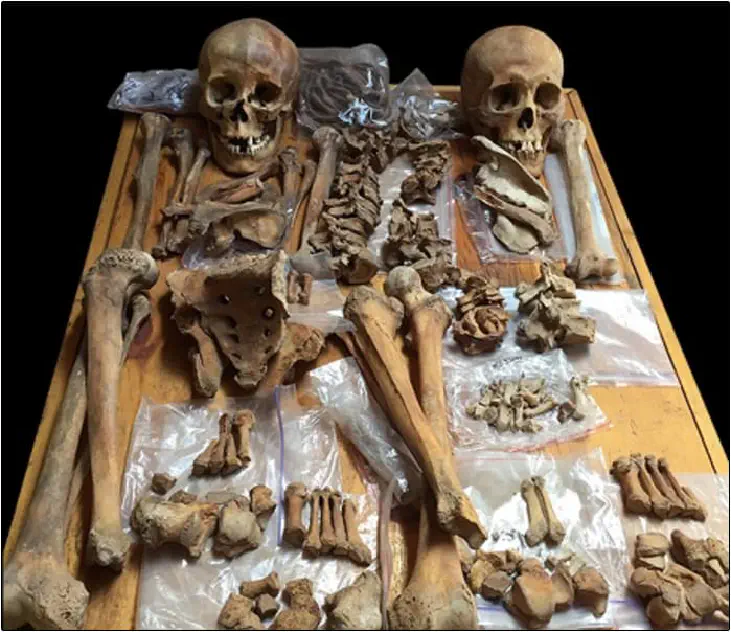
— Chilling History
Remarkably, nearly 50% of the remains from this 9,000-year-old burial site belonged to female hunters. However, as time progressed, female participation in hunting gradually declined, as more recent hunter-gatherer societies allocated agricultural duties to women.
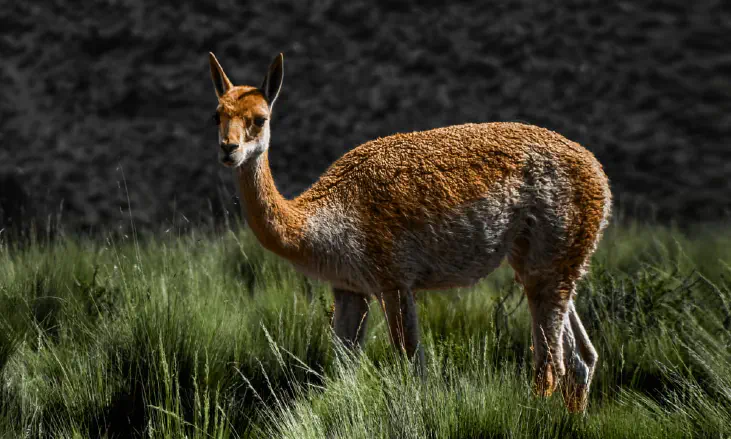
— Lucas Suarez
While this discovery provides answers to long-standing questions about gender divisions in early human societies, it also raises intriguing new inquiries. The team of archaeologists now seeks to delve further into the dynamics of gender and labor division, exploring the consequences of this shift and why female hunters eventually dwindled in numbers.
As Randy Haas aptly notes, “We need to reevaluate the extent to which gender constructs have always shaped the division of labor.” This remarkable excavation challenges our preconceived notions and offers a fresh perspective on the intricate tapestry of early human societies.
Women Role in Modern Times
In modern times, the roles and contributions of women have evolved significantly. Women now play vital roles in various aspects of society, including:
- Professional Careers: Women have made great strides in the professional world, pursuing careers in a wide range of fields such as medicine, law, engineering, finance, technology, and more. They have proven themselves as capable leaders, innovators, and contributors in their respective industries.

— Chandra Castaneda
- Education: Women have achieved remarkable progress in education, with increasing numbers pursuing higher education and attaining advanced degrees. This has empowered them to excel academically and pursue diverse intellectual pursuits.

— Wildan Zainul Faki
- Leadership and Governance: Women have broken barriers and assumed prominent leadership positions in politics, government, and business. They have become influential decision-makers, driving positive change and advocating for gender equality, social justice, and human rights.

— Cara Porter
- Science and Research: Women have made significant contributions to scientific research and technological advancements. They have excelled in fields such as medicine, biology, physics, chemistry, and computer science, pushing the boundaries of knowledge and innovation.
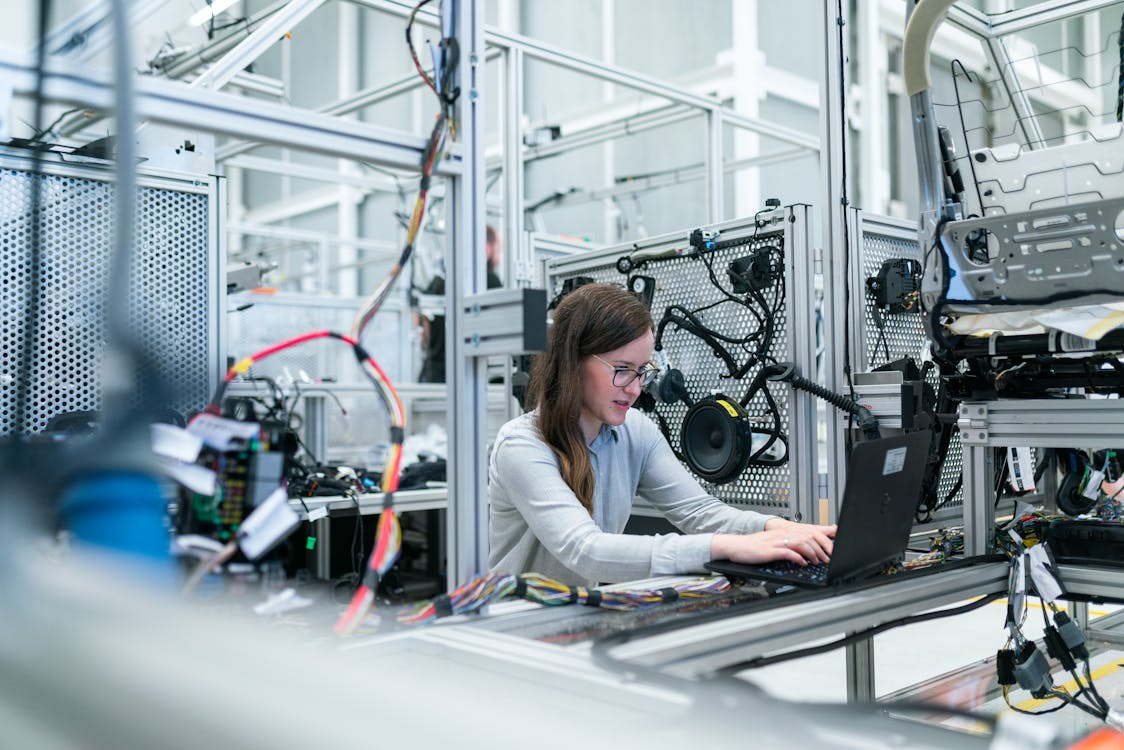
— Goldie Keys
- Social and Cultural Impact: Women have been at the forefront of social and cultural movements, advocating for equality, women’s rights, LGBTQ+ rights, racial justice, and environmental sustainability. They have played pivotal roles in shaping public opinion, challenging societal norms, and promoting inclusivity.

— Doris Joyce
- Family and Society: Women continue to play crucial roles within families and communities, providing care, nurturing, and support. They contribute to the well-being of their families, serve as role models for future generations, and actively participate in community development initiatives.

— Sharon Hardy
The roles and contributions of women are diverse and multifaceted. Women have proven their resilience, intelligence, and capabilities across various domains, enriching society and inspiring others along the way.
